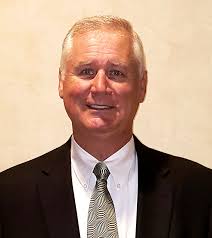In the wake of the latest economic crisis, there’s no such thing as true job security.With more than 10% of Americans unemployed, the last few months has seen a drastic fall in the employment rate. If you’re one of the millions of Americans, currently unemployed and wondering how to manage your finances, one question is likely to linger on: Should you keep saving for retirement when you no longer have a job?
How to decide whether to continue saving for retirement when unemployed?
It’s simple. Can you afford it?
If you do not have the money to pay your essential bills, such as housing, food, insurance, home and car repairs, debt payments, etc. saving for retirement should be the least of your worries. You need to use whatever money you have to cover these expenses.
If you do not have an emergency fund, at least six months of living expenses, you cannot afford to save for retirement. Emergencies can strike anytime, and if you have no money to cover it, you will be forced to sell investments, withdraw from your retirement account or borrow at a high-interest rate – and none of these options are good financial decisions when unemployed. So, focus on putting extra money toward your emergency fund instead of saving for retirement.
How to save for retirement when unemployed?
- Get acquainted with IRAs
An individual retirement account (IRA) is a great option for people who do not have access to an employer-sponsored retirement plan such as a 401(k) account. In a traditional IRA, the contributions are deducted from whatever taxable income you have, much similar to a 401(k). However, in a Roth IRA, earnings are taxed upfront, but your withdrawals in retirement are not taxed. So if you’re not employed full-time, but have some earned income, IRAs can help save for retirement. - Rollover your old 401(k)
If you are unemployed, you will not be able to contribute to your employer-sponsored 401(k). However, the account is still yours, and the money in it is also yours. You have two options: let the money in your 401(k) lie as it is or roll it over to a traditional retirement account (IRA). Rolling over your 401(k) into an IRA could be a better option because you will have more flexibility and better investment options. And you can begin contributing to it once you start earning income. - Focus on optimizing your investment portfolio
If you no longer have a job, you may not be able to add to your retirement accounts, but you can definitely make sure that your portfolio is optimized. Make sure you have the right mix of investments and stocks in various asset classes and industries. Examine your investment portfolio to ensure that you are not under or over-invested in any area. - Consider reinvesting dividend income, if your finances allow
If you own dividend stocks, you may be tempted to redirect the dividend income towards paying your bills and get through the rough phase of unemployment. But if you can get by without doing it, consider redirecting your dividend income to buy more stocks and other investments. These small contributions to your retirement portfolio can add up to significant savings over time. - Focus on long-term growth, if you can
If you have some investments in a taxable brokerage account, you may be tempted to move them to dividend stocks or other income-generating investments for the extra income that you could use for covering your expenses. However, making this change can provide you the temporary relief, especially if you are unemployed, but it can harm you in the long run. Rather than making such adjustments in your portfolio, find some other sources of generating income or reduce your spending.
Losing your job after being gainfully employed for years can be a nasty shock. But the steps mentioned above can help you manage money and come out on the other side, financially stable and much in control of your life.
If you have recently lost your job, and need advice on the best way to manage retirement accounts at this time, call Rick at (866) 639-0066.

Rick Pendykoski is the owner of Self Directed Retirement Plans LLC, a retirement planning company based in Goodyear, AZ. He has over three decades of experience working with investments and retirement planning, and over the last ten years has turned his focus to self-directed ira accounts and alternative investments. If you need help and guidance with traditional or alternative investments, call him today (866) 639-0066.




